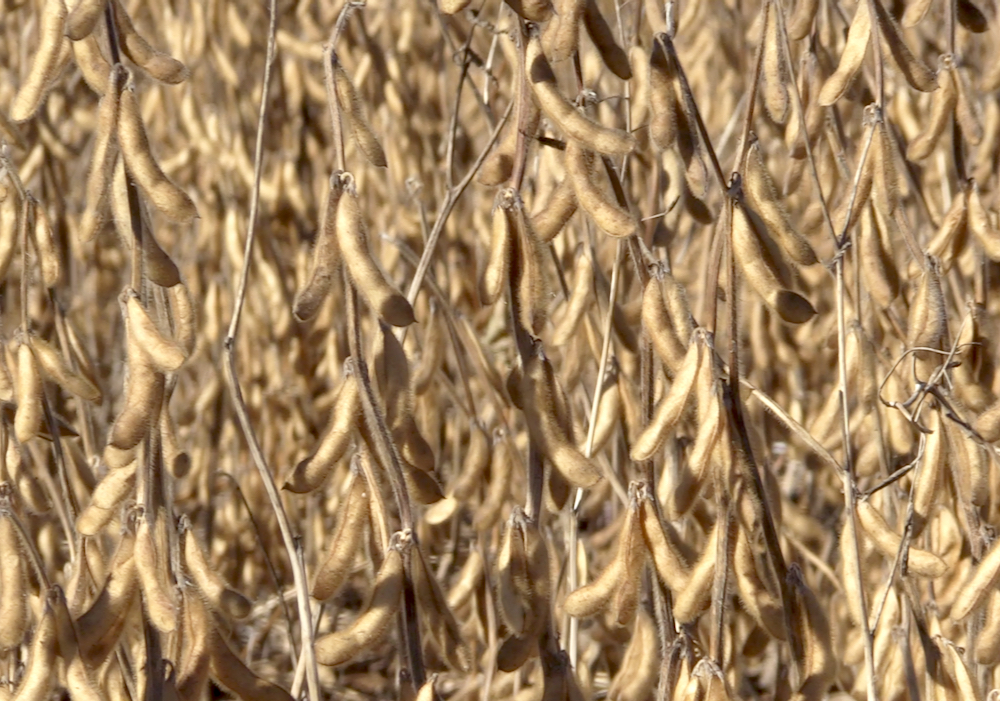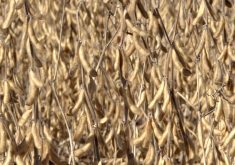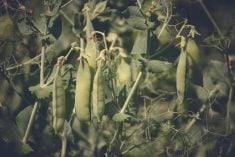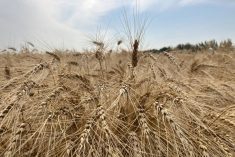Bayer CropScience Canada has picked up registration for a new liquid treatment against early-season seed and seedling diseases in Prairie pulse and soybean crops.
And the company says its new product, branded Trilex AL, will be “very compatible” with inoculants used on those crops.
Trilex AL, announced in a release Monday, is registered for use on beans, chickpeas, lentils, peas and soybeans, against diseases caused by Rhizoctonia solani, Fusarium spp., Botrytis cinerea, Phomopsis longicolla and seed-borne Ascochyta spp., the company said.
Read Also

CBOT Weekly: Grain, oilseed futures under pressure
November soybeans lost 23 U.S. cents per bushel during the week, while corn and wheat losses ranged from five to 10 cents.
The product, sold as a water-based liquid formulation, is designed for commercial or on-farm treating with conventional seed treating equipment and is already available from “participating retailers” across the West, the company said.
Calgary-based Bayer said its product “outperformed” major pulse seed treatment competitors and performed “way ahead” of untreated checks for control of rhizoctonia or fusarium in pulses and botrytis in lentils.
Graham Hastie, Bayer’s manager for cereal crop fungicides/insecticides and seed treatments, added in Monday’s release that inoculant companies have done “extensive testing” with Trilex AL.
Those companies, he said, found Trilex to have “one of the highest compatibilities between fungicidal seed treatments and rhizobium-based inoculants, which means plants are able to get maximum nodulation.”
















